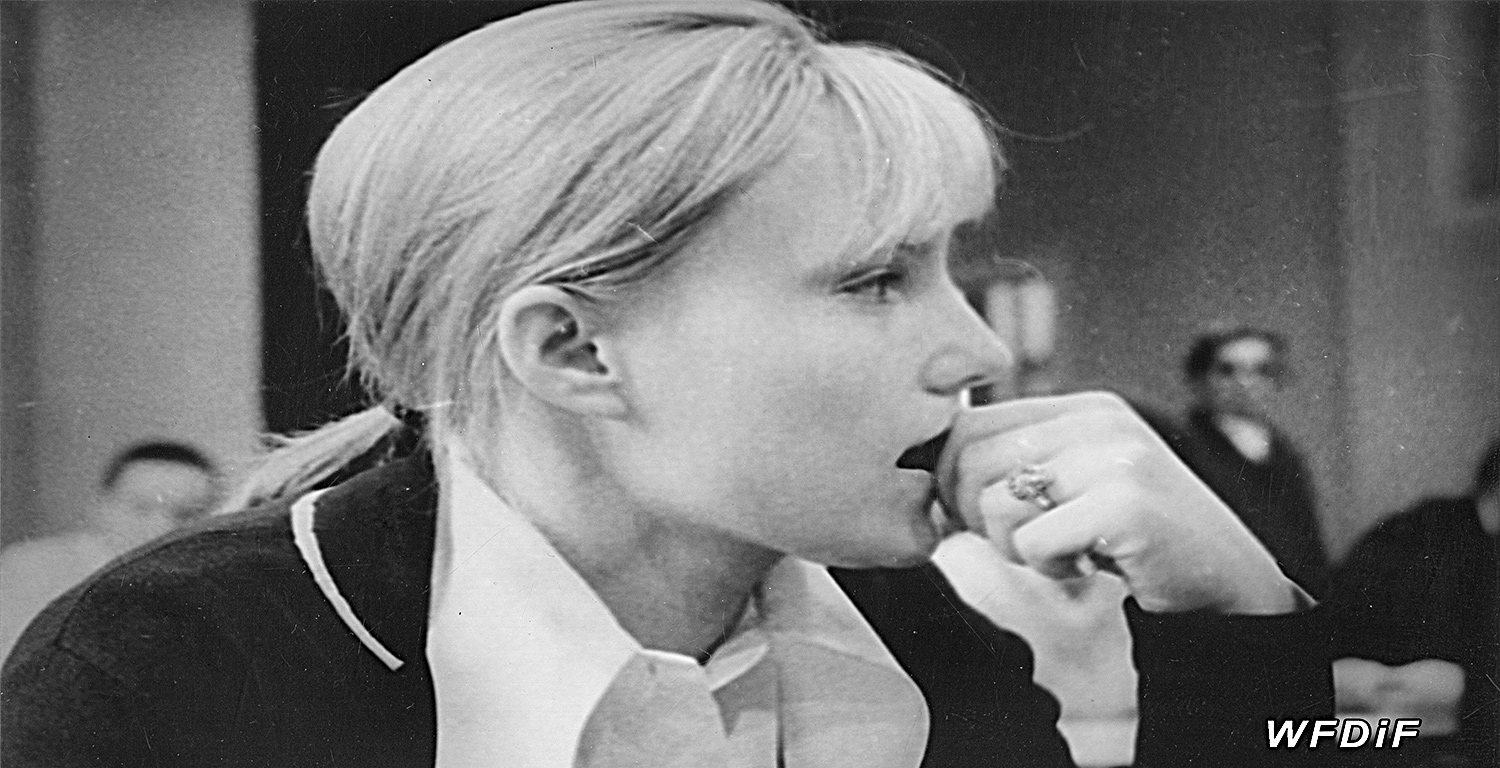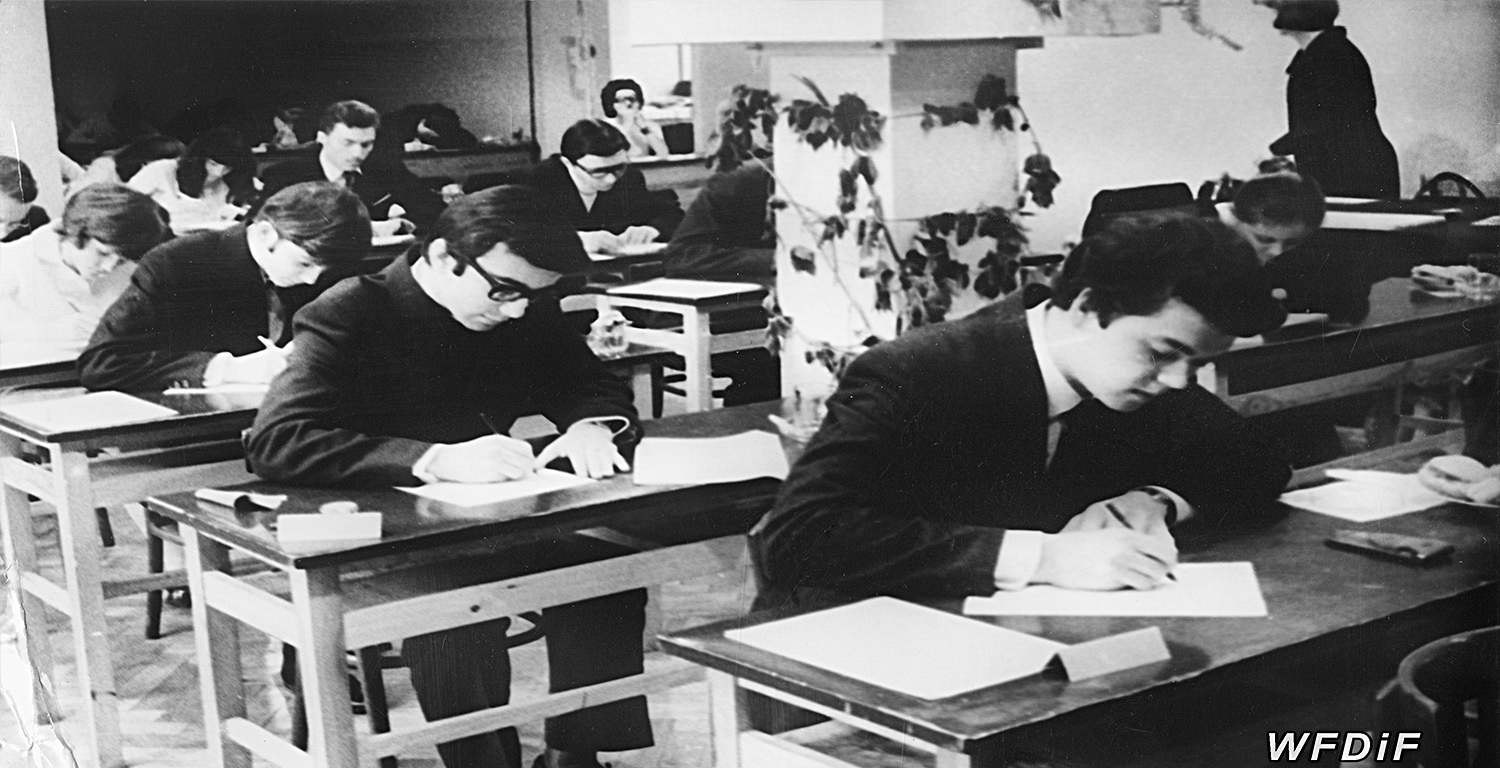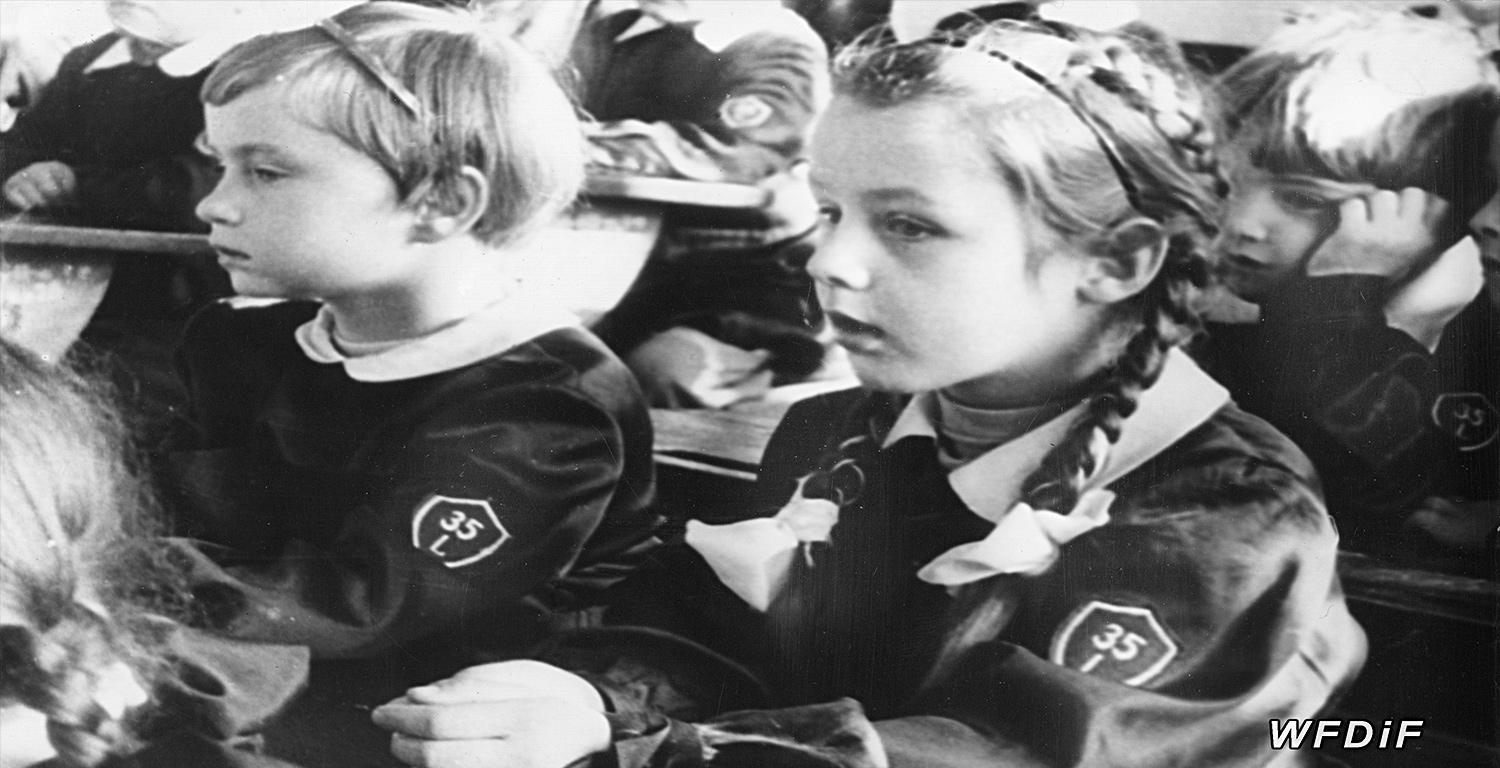In this documentary, Halladin cuts between three locations to ponder over the mentality and the desires of the eighteen-year-olds as they are taking their final school exams. The film starts in a corridor where girls in white shirts wait to enter the exam hall. As the teacher reads the register and students, both girls and boys, take their seats, Halladin cuts to introduce footage from her 1960 film First Grade.
The comparisons between the first and the last days of school keep coming back through the first half of the film. By cutting back to the primary school lesson, Halladin comments on the long educational journey the graduates have behind them. She also brings to light that the stress of the unknown and the apprehension to move on seems to be equally intense for those who enter the classroom for the first time and those who are about to start their adult lives.
The most interesting part of the film comes when the same graduates are asked to reflect on their future. Some choose to discuss what professions they would like to enter. Inspired by their teachers, a few young women opt to go into teaching or therapy. Some boys discuss their dreams of becoming architects or physicists.
The conversation continues until someone subtly points to the overall political and social climate in the country that would require change before the young adults can consider themselves satisfied.
During final sequence, some graduates with youthful energy express their belief that they can contribute to change, perhaps even become revolutionary leaders. Their words are questioned by others who are more doubtful or perhaps just realistic. Some cynics see no possibility to help others, so they just want to indulge.
When one of the enthusiasts for change is finally asked, ‘Tell me how are we supposed to do it?’ He can only answer: ‘I don’t know’. When one more person expresses such doubts, they then seem to echo in the next silent observational close-up on one of the boys writing his final exam.
 RETURN TO Danuta Halladin Graduates
RETURN TO Danuta Halladin Graduates Read More
Read More View images
View images More films
More films



